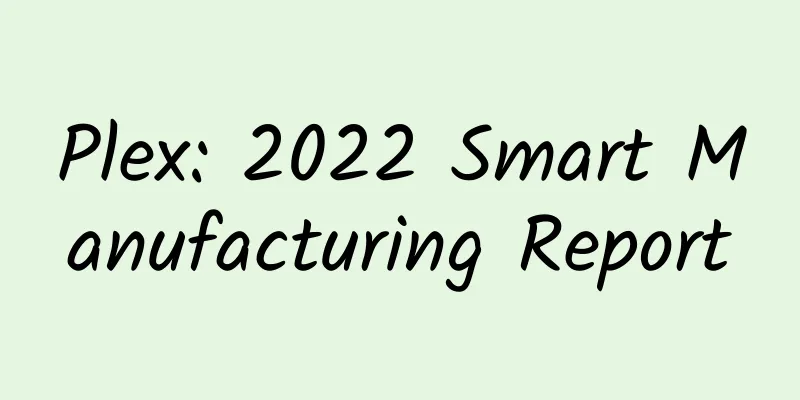Plex: 2022 Smart Manufacturing Report

|
Plex released the "2022 Smart Manufacturing Report", revealing the ongoing challenges manufacturers face in the supply chain crisis and the struggle to regain control of key commodities, supplier life, technological innovation and logistics complexity. The study surveyed 321 global manufacturers to understand their agility, technology adoption and need for process improvement in response to market adversity. The speed of popularization of intelligent manufacturing has increased by 50% Technology and automation are driving the next generation of manufacturing, and the adoption of smart manufacturing will continue to accelerate in 2022. Software modularity allows for the adoption of incremental technology, which is increasingly attractive as manufacturers look to become more agile in the face of adversity.
The pandemic exposed the lack of a complete supply chain planning solution The pandemic exposed and exacerbated the stopgap measures previously used by manufacturers. The fragile nature of systems, processes, and supply chain solutions that had historically been measured as “good enough” became apparent.
Once overhyped technology is solving today’s problems Technologies once viewed as overhyped and unlikely to make meaningful contributions are now critical to success. Cloud computing, industrial rugged equipment, and process automation are helping companies overcome challenges such as skilled labor shortages, supply chain management, and risk reduction. Additionally, machine learning/artificial intelligence is gaining mainstream adoption to support complex supply chain planning.
|
<<: IFR: 517,385 new industrial robots installed worldwide in 2021
Recommend
Lanzhou WeChat ID photo mini program function, how to make the standard ID photo mini program?
WeChat Mini Programs have been online for more tha...
Nurse! Come quickly! There are bubbles entering the infusion!
Audit expert: Qu Bo Chief Physician of General Su...
[Creative Cultivation Program] The small world in the intestines is also full of blood and gore. How can we eat well to help intestinal probiotics take over?
The human heart weighs about 300g, the brain weig...
Luna's "Secrets of licking, 25 ways to play" for both sexes, quickly improve your oral skills
Luna's "Secrets of licking, 25 ways to p...
What you think is “fat” may not be fat, and what you think is “not fat” may be really fat…
Today is United Nations Diabetes Day. It is well ...
How much does it cost to develop a watch mini program in Nagqu?
The main factors affecting the price of mini prog...
What are the conditions for activating a 400 telephone number?
The 400 telephone number is a relatively popular ...
When the trend has become a thing of the past, Lei Jun's Xiaomi mobile phone has turned from a myth into a joke
"Do you know what Xiaomi's flagship phon...
How to operate new media in the medical and health field?
The essence of creating a doctor's IP is to t...
Our world is so beautiful, how are these colors made?
Light brings brightness to the world. Humans and ...
This iOS 15 push notification design guide is worth reading carefully by designers!
Compared to last year's WWDC 2020, which rele...
What are the placements on the Massive Engine delivery platform? How to choose?
We have compiled the following for you: the featu...
Are colored glasses poisonous? Come and see if your glass is poisonous
gossip "Colored glass cups are poisonous and...
Voyage launches its first driverless taxi: controlled by mobile phone
Recently, Voyage launched its first driverless ta...
The "soul" powder on the rolls, once the namesake of Sri Lanka, is more valuable than gold!
As the saying goes, "Without rice, there is ...









